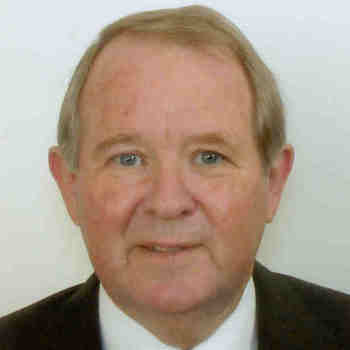DOCTOR OF LAW (HONORIS CAUSA)
 Lauded by his peers as much for the depth and brilliance of his scholarship as for his principled and passionate human rights advocacy, Professor John Dugard is recognised as a key architect of the vision for a more just legal order in South Africa which gave rise to the new Constitution with its entrenched fundamental human rights.
Lauded by his peers as much for the depth and brilliance of his scholarship as for his principled and passionate human rights advocacy, Professor John Dugard is recognised as a key architect of the vision for a more just legal order in South Africa which gave rise to the new Constitution with its entrenched fundamental human rights.
Tributes to his contribution to the law in South Africa have been many and varied. He was described recently by Chief Justice Arthur Chaskalson as South Africa’s “doyen of international law”, and during his 1994 interview with the Judicial Service Commission for the Constitutional Court, he was acknowledged as having pioneered human rights jurisprudence in South Africa.
The late Chief Justice Ismail Mahomed, speaking at a 1998 farewell for Prof Dugard at the University of the Witwatersrand, said: “…the contribution of John Dugard and the small coterie of young and vigorous academics whom he attracted, in chiselling away at the very foundations of orthodox jurisprudential perspectives in South Africa and in restructuring the moral and jurisprudential values of generations of lawyers who began to permeate the practice and teaching of the law, has been among the most crucial, the most profound and the most decisive even if not the most visible of the influences which have impacted and which will continue to impact on the structure of our legal universe.”
John Dugard was born in Fort Beaufort in 1936. He obtained his BA and LLB from the University of Stellenbosch. After two years practising as an advocate and lecturing at the University of Natal, he left in 1963 for Cambridge, where he obtained an LLB and a Diploma in International Law. He was awarded an LLD by Cambridge in 1980 on the basis of his publications, and holds honorary LLD degrees from the universities of Natal and Cape Town.
It was during his time at Wits, where he was Professor of Law from 1969 to 1998 and Dean of the Faculty from 1975 to 1977, that he founded the Centre for Applied Legal Studies. From 1978 to 1990, he was Director of the Centre, developing it into the most significant institute of its kind in the country.
He later said the Centre should more accurately have been called the Human Rights Centre but, as with his Aspects of Public Law course introduced in the early 1970s at Wits, giving it its proper name would have attracted unwelcome attention from the authorities. Aspects of Public Law was the first law school course in what was then regarded as the rather subversive subject of human rights.
On the drafting of the new Constitution, Justice Mahomed said: “In those very long, often agonizing, always intense, very difficult and crucial debates at Codesa and after which preceded the adoption of the Constitution, the voice and the influence of John Dugard was fulsome. … The entrenchment of fundamental human rights in the South African Constitution which followed vindicated a lifetime of struggle … for the ideals which had absorbed so much of his energies and his passion.”
Prof Dugard was a member of the technical committee investigating the repeal or amendment of legislation impeding free political activity and discriminatory legislation in 1993, part of the negotiations for an interim constitution. He later served on the technical committee which advised the Constitutional Assembly on the Bill of Rights.
His expertise is internationally acknowledged. He has lectured extensively abroad, including working as Director of the Lauterpacht Research Centre for International Law at Cambridge from 1995 to 1997, and is currently Professor of Public International Law at the University of Leiden in the Netherlands. He is, or has been, a member of several international law bodies including, since 1997, the panel of experts appointed by the International Committee of the Red Cross to study the customary rules of international humanitarian law. In 2002, he was Judge ad hoc in the International Court of Justice in the case concerning armed activities in the Congo territory.
In 1997, Prof Dugard became the first South African elected by the United Nations to the International Law Commission, and was re-elected in 2001. He is also a member of the UN Commission on Human Rights and has devoted much of his time over the past two years to preparing reports for these two bodies. He chaired the Human Rights Commission of Inquiry into violations of humanitarian law in the occupied Palestine territories in 2000 and 2001.
A son of the Eastern Cape, Prof Dugard has achieved international recognition for his contribution to the promotion of the rule of law and respect for human rights. He has dedicated his life to the teaching and practice of law, to the promotion of human rights, and to his commitment to the indivisible aims of morality and justice. The University of Port Elizabeth is proud to honour him with the degree Doctor Legum honoris causa.